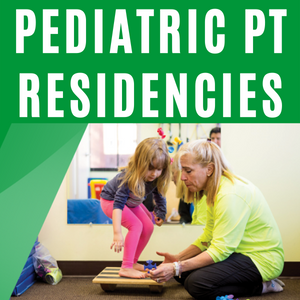Back
Platform presentation
Mentorship in Physical Therapy
Friday, November 18, 2022
2:49 PM – 3:06 PM
Location: Grand Ballroom 1
- AF
Anna Fern-Buneo, PT, DPT, MA, PCS (she/her/hers)
PT Clinical Specialist
Phoenix Children's Hospital
GILBERT, Arizona
Platform Presenter(s)
Purpose/Hypothesis: Physical therapists now have a greater emphasis on productivity with less understanding from administrators regarding the amount of time spent in non-billable tasks. Increased workloads lead to burnout, staff turnover, safety risks and poor quality of care. Mentoring has been shown to improve clinical decision making in novice clinicians in acute care, pediatric and inpatient rehab settings.
Research Questions:
What is the importance of mentorship to job satisfaction in physical therapists? How does this differ by practice setting and years of experience?
What role does being a mentor play on job satisfaction/retention?
How does mentorship improve patient outcomes?
My hypothesis was that mentorship is critical for therapists at all stages and settings.
Number of Subjects: 88 responses
Materials/Methods: IRB approved anonymous survey was sent to physical therapists in AZ and several national PT platforms. It was a snowball sampling.
Survey included questions on-
• Demographics
• Qualities of a good mentor
• Facilitators/ barriers to providing/receiving mentorship
• Benefits of having/being a mentor
• Relationship to job satisfaction, retention, productivity and patient outcomes
Descriptive statistics ,qualitative and regression analyses.were reported, Stata17 (College Station, Texas). was used.
Results: 88 responses:
• 89.9% female
• 47.5% 25-35 years old
• 76.5% large urban area
• 73.7% DPT
• 47.5 % Hospital-based (32.3% OP, 5.2% IP)
• 64.6 % Pediatrics
• 54.5% Staff level
• 30-100% Productivity standard, Meeting 39.3%
Significant findings were:
Receiving mentorship is meaningful for
• Younger therapists impacting job retention p=.007
• Therapists with less experience p=.022
The value of receiving mentorship decreases with years of experience p=.010
Younger therapists benefit the most from receiving mentorship impacting patient outcomes. P=.022
The value of receiving mentorship decreases with years of experience p=.010
Providing mentorship valued at higher level positions p=.085
Qualitative Findings:
Frustrations reported-lack of time/support, mentors with needed expertise and isolation
Barriers to mentorship-poor fit, different goals/communications styles
Other findings include a focus on novice stage
Conclusions: Mentorship impacts many aspects of job functions for physical therapists across settings and stages of growth
Younger and less-experienced therapists value mentorship more, as do those in large urban areas, and hospital-based settings.
Providing mentorship is more important for therapists at levels above staff positions.
Clinical Relevance: Mentorship remains a valuable part of the professional development of physical therapists.
Future directions for this research include determining the value of mentorship for mid and late career, in light of these findings. Improving infrastructure to support more opportunities to clinicians for providing mentorship through APTA would be beneficial. This is currently being done in The Academy of Pediatric Physical Therapy. Perhaps this section's mentoring program could serve as a prototype for the entire organization.
Research Questions:
What is the importance of mentorship to job satisfaction in physical therapists? How does this differ by practice setting and years of experience?
What role does being a mentor play on job satisfaction/retention?
How does mentorship improve patient outcomes?
My hypothesis was that mentorship is critical for therapists at all stages and settings.
Number of Subjects: 88 responses
Materials/Methods: IRB approved anonymous survey was sent to physical therapists in AZ and several national PT platforms. It was a snowball sampling.
Survey included questions on-
• Demographics
• Qualities of a good mentor
• Facilitators/ barriers to providing/receiving mentorship
• Benefits of having/being a mentor
• Relationship to job satisfaction, retention, productivity and patient outcomes
Descriptive statistics ,qualitative and regression analyses.were reported, Stata17 (College Station, Texas). was used.
Results: 88 responses:
• 89.9% female
• 47.5% 25-35 years old
• 76.5% large urban area
• 73.7% DPT
• 47.5 % Hospital-based (32.3% OP, 5.2% IP)
• 64.6 % Pediatrics
• 54.5% Staff level
• 30-100% Productivity standard, Meeting 39.3%
Significant findings were:
Receiving mentorship is meaningful for
• Younger therapists impacting job retention p=.007
• Therapists with less experience p=.022
The value of receiving mentorship decreases with years of experience p=.010
Younger therapists benefit the most from receiving mentorship impacting patient outcomes. P=.022
The value of receiving mentorship decreases with years of experience p=.010
Providing mentorship valued at higher level positions p=.085
Qualitative Findings:
Frustrations reported-lack of time/support, mentors with needed expertise and isolation
Barriers to mentorship-poor fit, different goals/communications styles
Other findings include a focus on novice stage
Conclusions: Mentorship impacts many aspects of job functions for physical therapists across settings and stages of growth
Younger and less-experienced therapists value mentorship more, as do those in large urban areas, and hospital-based settings.
Providing mentorship is more important for therapists at levels above staff positions.
Clinical Relevance: Mentorship remains a valuable part of the professional development of physical therapists.
Future directions for this research include determining the value of mentorship for mid and late career, in light of these findings. Improving infrastructure to support more opportunities to clinicians for providing mentorship through APTA would be beneficial. This is currently being done in The Academy of Pediatric Physical Therapy. Perhaps this section's mentoring program could serve as a prototype for the entire organization.

.png)
.jpg)
.png)
.png)
.png)
.png)
